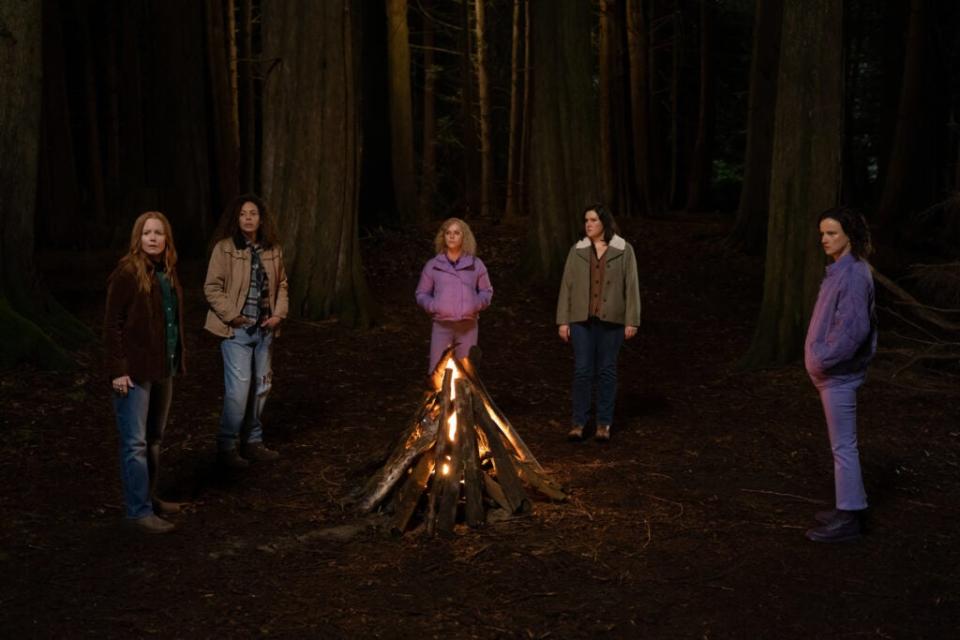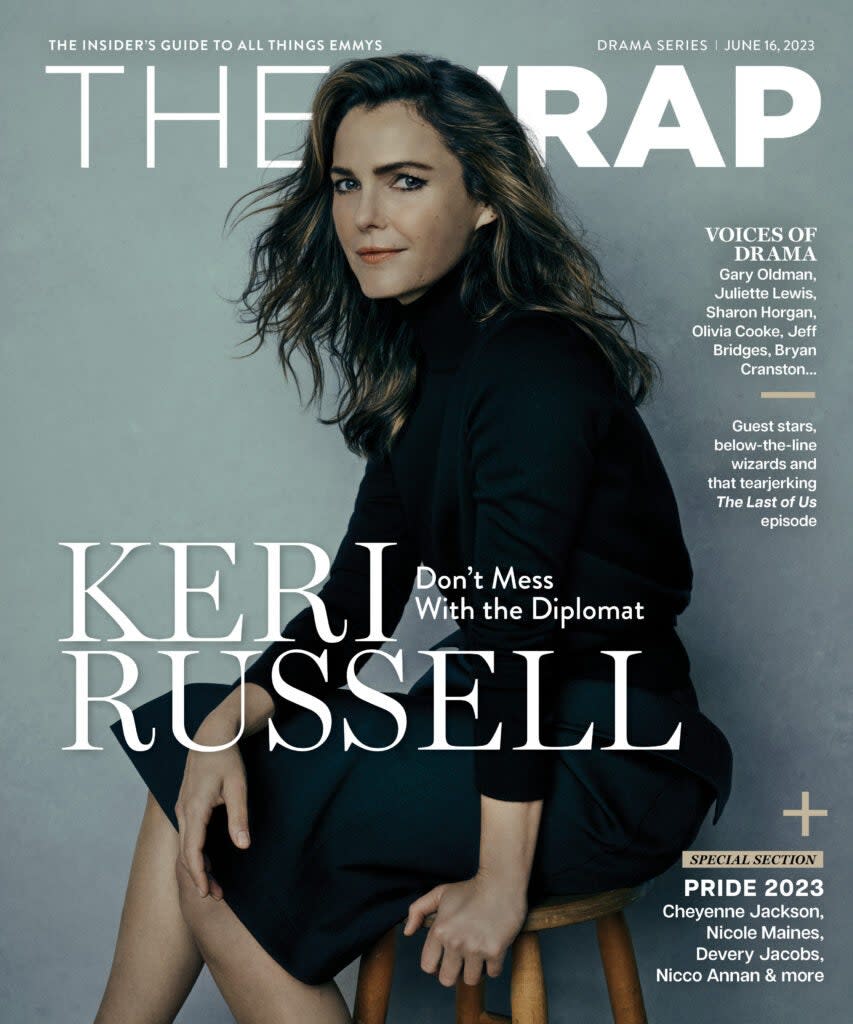How ‘Yellowjackets’ Used Radiohead and an Ensemble Cast to Keep Things ‘Simple’ in the Edit Booth
- Oops!Something went wrong.Please try again later.
This story about the editors of “Yellowjackets” first ran in the Drama Series issue of TheWrap’s awards magazine.
The opening theme to “Yellowjackets” goes, “keep simple, nothing tired,” and this mantra could not apply more to the people who might actually be the true heroes behind the Showtime hit: the tireless editing team. The drama’s second season about a group of women grappling with the aftermath of a crash landing in the wilderness in their youth has pushed the envelope even further (cults! cannibalism!) and introduced more characters (including Elijah Wood’s wealthy amateur sleuth). But for two of the prominent editors on the show, Kevin D. Ross and Jeff Israel, it was just another day at the office, conveniently located in their own residences.
“We all work from home, so we have to keep contact in with each other constantly,” Israel said. “They’re writing the episodes as often as we’re cutting them, especially the early ones, and we don’t always know where everything is going each season. So the editors are always communicating with each other and often spoiling things for each other.”
Also Read:
Can’t Get Enough of the ‘Yellowjackets’ Cast? Watch These Movies & Shows Next
That is, when they are actually privy to the storylines. “We’re guessing as much as anyone online and we’re on a need-to-know basis by how many scripts ahead we are,” Ross said. “But it’s fun because you get to cut for the characters in the emotional state they are in at that moment, or if they’re lying. So if there’s a little glint in their eye, we can cut those in because we think it looks cool.”
Cool is an understatement for the actors Ross and Israel get to cut for. The series employs one of the best ensembles in the business, who provide an abundance of choices. “Christina Ricci makes typing on computer look incredible, and Tawny Cypress has some really fantastic reactions,” Israel said. “Juliette Lewis has always had some awesome improvs. And obviously, everything Melanie (Lynskey) is doing.”

Ross heartily agreed. “We usually have at least three takes with variations,” he said. “It’s the editors’ job to try to find what we believe is the correct interpretation for the scene. It’s always great material to start with, but I’ve never been on a show with all the actors so on top of things—the young actors, the older actors, it’s all top-notch.”
And unlike many current dramas, Yellowjackets remains taut in running time, exceeding a one-hour format only once in two seasons. “The magic of editing is that we take things out that no one will ever miss,” Ross said. “I mean, the writers will miss it. For instance, there’s a scene with Misty (Ricci) and Walter (Wood) driving. That scene was probably 30% longer. It’s Christina and Elijah so you want to live in their world forever because they’re so great together. But just to make it move a little bit faster, you can get rid of a couple of lines there and the story still flows. What’s fun about our job is we get to do editorial gymnastics all the time.”
Also Read:
‘Yellowjackets’ Season 2 Soundtrack: All the Songs in the Showtime Series
The duo credited fellow editors Genevieve Butler, Kindra Marra and Daniel Williams for achieving this balance. (Many of the episodes credit more than one of them, which is not surprising given the profusion of story elements at play.) Music has helped immeasurably with mood in the way they cut the current season, including the use of Radiohead’s “Climbing Up the Walls” in the tense “Edible Complex” episode.
“The song was perfect because it builds and builds and gets really frantic, and that’s when (the feast) gets really crazy,” he said. “And with the Thom Yorke scream at the end, the door slams. When you find that perfect needle drop, it really tells you how to put the scene together.”
Read more from the Drama Series issue here.


